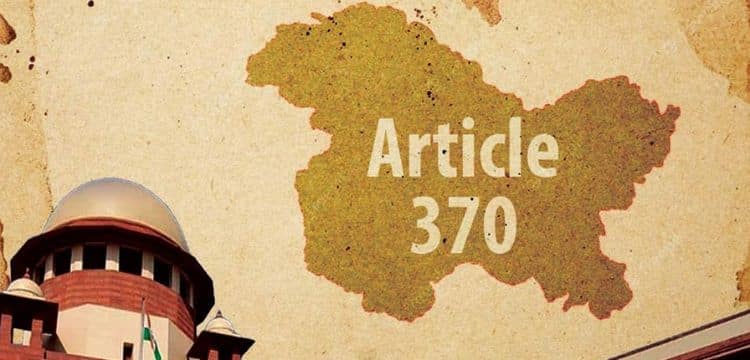[vc_row][vc_column][vc_column_text dp_text_size=”size-4″]Article 370 of the Indian Constitution, once a defining feature of Jammu and Kashmir’s autonomy, underwent a significant transformation with its abrogation.
This article delves into the key features of Article 370 and examines the effects of its removal on the legal, political, and socio-economic landscape of Jammu and Kashmir.
1. Guarantees Special Status:
The abrogation of Article 370 marked the end of the special status that Jammu and Kashmir had enjoyed. This removal fundamentally altered the relationship between the region and the Indian Union, ushering in a new era of integration.
2. State Assembly’s Authority:
With the removal of Article 370, the state assembly’s authority to formulate its constitution was extinguished. Jammu and Kashmir, like other Indian states, now adheres to the Indian Constitution, eroding its distinctive political identity.
3. Property Ownership and Fundamental Rights:
While the removal of Article 370 maintained safeguards for property ownership and fundamental rights, it brought Jammu and Kashmir under the uniform legal framework applied to the rest of India, promoting legal parity.
4. Relaxation on Land Ownership:
Citizens from other states are no longer restricted from purchasing land or property in Jammu and Kashmir. The removal of this restriction has the potential to stimulate economic development and attract investments, but it also raises concerns about demographic changes in the region.
5. Integration with National Laws:
Post abrogation, Jammu and Kashmir are now subject to the same set of laws as other states in India. This integration is aimed at fostering a sense of uniformity and national identity but has also sparked debates on the preservation of local cultural and legal nuances.
6. Financial Emergency Dynamics:
The removal of Article 370 allows the central government to declare a financial emergency under Article 360 in Jammu and Kashmir. This change provides the central government with increased fiscal oversight, which may impact the region’s financial autonomy.
Also Read: Indian Supreme Court Declares Article 370 Removal As Valid
Effects on Socio-Political Landscape:
The removal of Article 370 has generated varied reactions. While some view it as a step towards greater national integration, others express concerns about the potential erosion of Jammu and Kashmir’s unique identity. The region has witnessed shifts in political dynamics, with changes in administrative divisions and political alignments.
The abrogation of Article 370 has undoubtedly reshaped the socio-political and legal fabric of Jammu and Kashmir. While it has opened doors for economic development and increased integration with the national framework, questions persist about the impact on the region’s cultural identity and the potential challenges in maintaining a delicate balance between autonomy and integration. The effects of this monumental constitutional change continue to unfold, influencing the trajectory of Jammu and Kashmir’s future within the Indian Union.[/vc_column_text][/vc_column][/vc_row]











